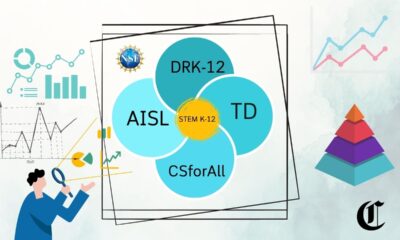The Briefing Signal
Biologist Brian Kloeppel shares insights from Capitol Hill visit to support federal science funding
CivicSciTV News Correspondent Jake Krauss interviews Dr. Brian Kloeppel, a biologist and faculty member at Western Carolina University, on Capitol Hill. Dr. Kloeppel discusses his advocacy efforts for federal science funding, particularly for the National Science Foundation and other key agencies supporting environmental research. He highlights the bipartisan support for science funding and shares insights from meetings with Congressional staffers. Dr. Kloeppel also emphasizes the broader impacts of research, such as job creation and educational opportunities, and the importance of scientists engaging in advocacy. He reflects on initiatives like schoolyard programs that inspire young students and calls for greater involvement from scientists in public outreach.
— Search for more insights on the Civic Science Media Terminal (CSM Terminal): https://civicsciencemedia.org #civicscitv
Science Advocacy, Federal Funding, Environmental Research, Public Outreach, STEM Education, Capitol Hill, National Science Foundation, NSF, Bipartisan Support, Student Engagement, Scientist Involvement
I am a conservation biologist and professional science communicator with experience on research expeditions across the globe. My background in tropical biology research has instilled me with a passion for wildlife conservation, environmental science, and bringing these issues to the attention of the general public through photography, film, science writing and presenting.

-
 Audio Studio1 month ago
Audio Studio1 month ago“Reading it opened up a whole new world.” Kim Steele on building her company ‘Documentaries Don’t Work’
-
Civic Science Observer1 week ago
‘Science policy’ Google searches spiked in 2025. What does that mean?
-
Civic Science Observer1 month ago
Our developing civic science photojournalism experiment: Photos from 2025
-
Civic Science Observer1 month ago
Together again: Day 1 of the 2025 ASTC conference in black and white
Contact
Menu
Designed with WordPress
























